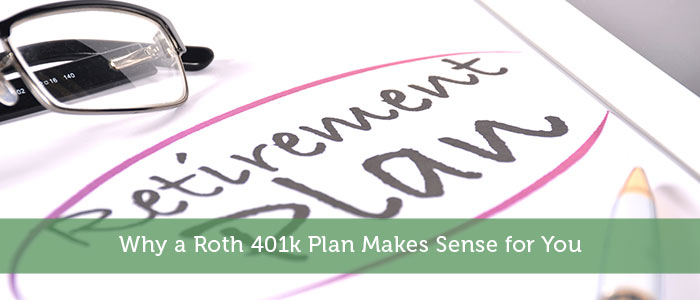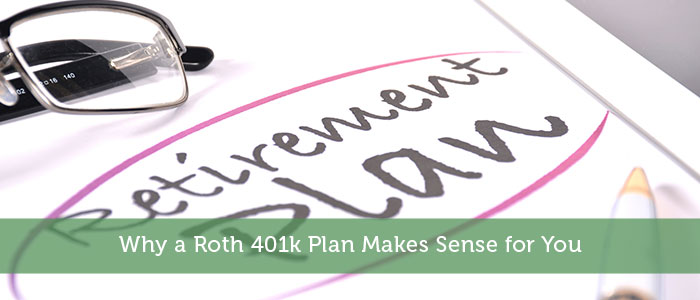Most everyone knows about a 401k plan. It is a typical benefit employers provide to help their employees save for retirement. While there are many benefits to investing in a 401k plan, there are some drawbacks. As such, a new version of the 401k plan has been growing in popularity. The Roth 401k plan.
What is this type of retirement plan and what are the benefits? And should you even consider this investment vehicle for your retirement savings?
In this post, I’ll walk you through everything there is to know about a Roth 401k plan and help you make a well thought out decision as to whether or not you should start investing in one.

Photo Source
What Is A Roth 401k Plan?
A Roth 401k plan is just like a Roth IRA. You invest after tax money into this retirement account and it grows tax free. The only major difference between a Roth 401k plan and a Roth IRA is that anyone can invest in a Roth IRA.
But to invest in a Roth 401k plan, your employer has to offer this plan to you. You cannot just open one with Vanguard or some other broker.
Benefits Of Investing In A Roth 401k
There are many benefits to investing in a Roth 401k plan. For example:
While this could be a benefit or not, depending on how you view it, it is important to know that employer matches are invested in a traditional 401k plan.











Leave A Comment